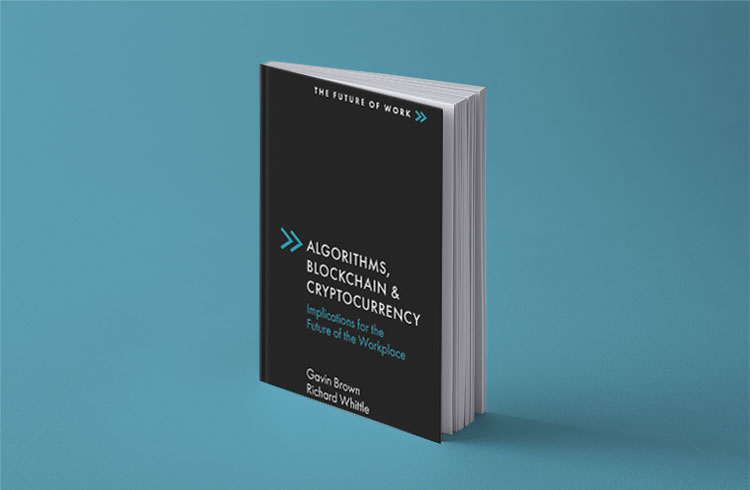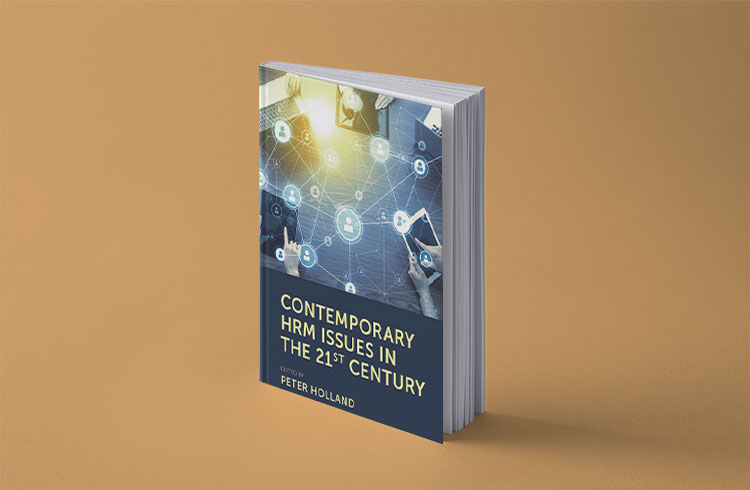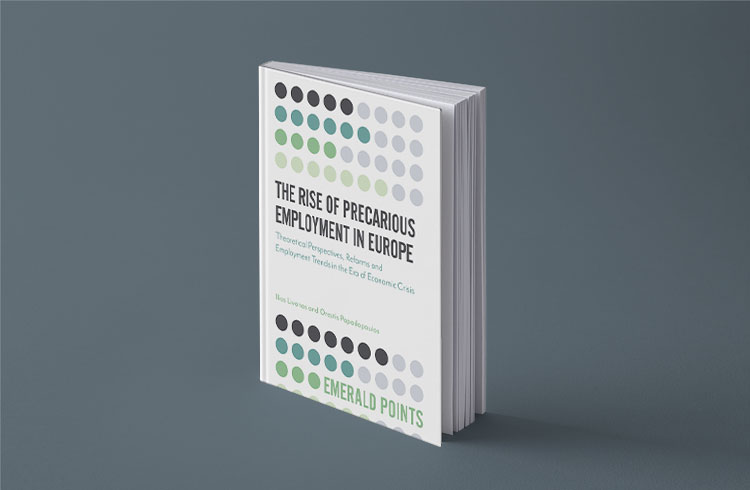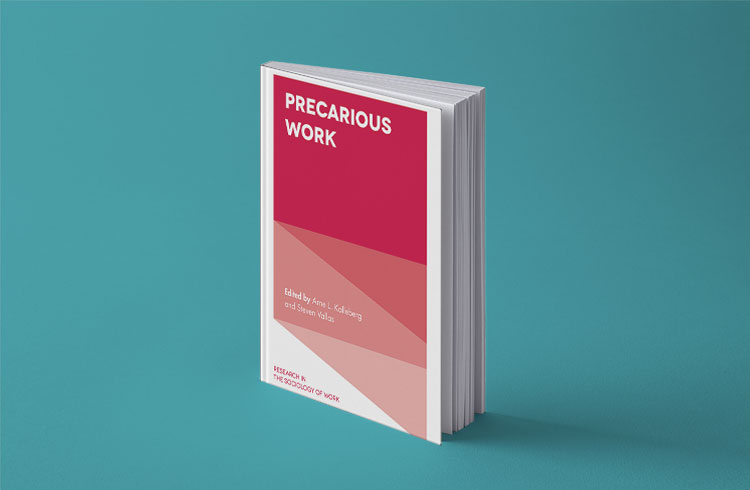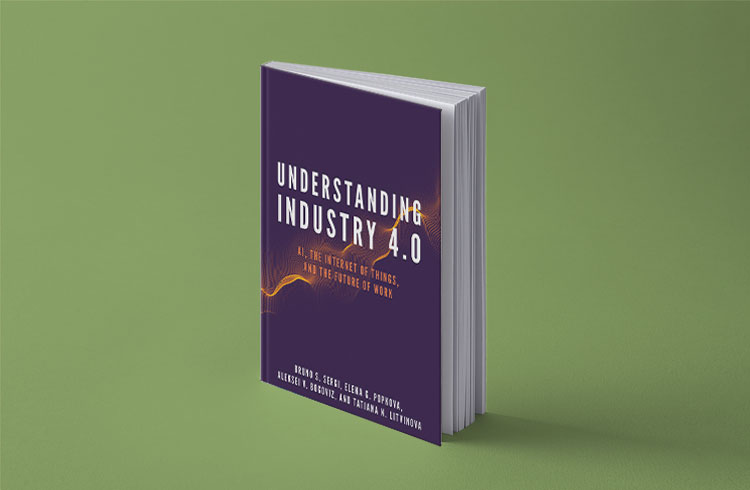The future of work is a key contemporary area of debate both in business and management research, but also in wider social, political and economic discourse.
Global issues including the ageing workforce, gig economy, workplace automation, changing forms of business ownership, and of course, the COVID-19 pandemic are all regularly the subject of debate in both academic research and the mainstream media, with wider professional and public policy implications. Take a look at how we are contributing to this debate and how you can join the conversation.
Explore the latest research in teaching and learning
We’ve made the following articles free to access until 30 September 2020.
- Diversity and future of work: inequality abound or opportunities for all?
Author: Banu Ozkazanc-Pan (Brown University, USA) in Management Decision - The role of curiosity in workplace automation
Author: Alison Horstmeyer (Intrinsic Curiosity, USA) in Development and Learning in Organizations - From sci-fi to sci-fact: the state of robotics and AI in the hospitality industry
Authors: Lisa Nicole Cain, John H. Thomas and Miguel Alonso Jr (all of Florida International University, USA) in Journal of Hospitality and Tourism Technology - How automation and digital disruption are shaping the workforce of the future
Authors: Debora Card and Craig Nelson (both of Information Services Group, USA) in Strategic HR Review - “This time may be a little different” – exploring the Finnish view on the future of work
Author: Ville-Veikko Pulkka (University of Helsinki, Finland) in International Journal of Sociology and Social Policy - Disruptive processes and skills mismatches in the new economy: Theorizing social inclusion and innovation as solutions
Author: Wendy Cukier (Ryerson University Ted Rogers School of Management, Canada) in Journal of Global Responsibility - Online outsourcing and the future of work
Authors: Korok Ray and Tessa A. Thomas (Texas A&M University, USA) in Journal of Global Responsibility - The future of work: disciplined useful activity
Author: Alan Cottey (University of East Anglia, UK) in Journal of Global Responsibility - The gig economy in the UK: a regional perspective
Author: Geraint Johnes (Lancaster University Management School, UK) in Journal of Global Responsibility
Here are some relevant chapters from recent books that you can access for free until 30 September 2020.
- How Work Changes in the Knowledge Economy
Authors: Bill LaFayette, Wayne Curtis, Denise Bedford and Seema Iyer in Knowledge Economies and Knowledge Work - Career Management in the 21st Century
Authors: Ross Donohue and Tse Leng Tham in Contemporary HRM Issues in the 21st Century - Common Features and Competences that are Necessary for All Future Professions
Authors: Bruno S. Sergi, Elena G. Popkova, Aleksei V. Bogoviz and Tatiana N. Litvinova in Understanding Industry 4.0: AI, The Internet of Things, and the Future of Work
Here are just a few of our cases on the future of work.
- All of the people, all of the time: click on the link to join the meeting
Authors: Adrian Mark van Eeden in Emerald Emerging Markets Case Studies
The case is based on a fictitious South African company going through emergency response conditions analogous with what many businesses are encountering during the COVID crisis. Students should be able to use the case study in debate, and apply theories relating to the subjects specified.
- Uber’s bumpy ride in China
Authors: Geeta Singh, Rishi Dwesar and Satish Kumar in The CASE Journal
This case is developed considering the bent of today’s consumers toward sharing economy. The scope of businesses based on the concept of sharing economy is very wide and is increasing. China’s sharing economy sector was one of the fastest economies in the world. The case chronicles ride of Uber in China: from its entry in the country, strategies adopted, challenges faced and to the exit from China.
- John Lewis partnership approaching 100 years – what now?
Authors: Frank Shipper and Richard C. Hoffman in The CASE Journal
John Lewis Company has been in business since 1864. In 1929, it became the John Lewis Partnership (JLP) when the son of the founder sold a portion of the firm to the employees. In 1955, he sold his remaining interest to the employee/partners. JLP has a constitution and has a representative democracy governance structure. As the firm approaches the 100th anniversary of the trust, it is faced with multiple challenges. The partners are faced with the question – How to respond to the environmental turmoil?
- Yongye Group: trust-based management
Authors: Pablo Cardona, Jiming Bao and Isabel Ng in Emerald Emerging Markets Case Studies
Yongye Group is a biotechnological enterprise in Inner Mongolia, China. In China, people lack trust in economic transactions due to the transitional state of the economy, especially regarding food safety. To respond to this situation, Wu Zishen, the chairman of the Board of Directors of Yongye Group, was determined to build trust among employees, distributors, farmers, and consumers towards the company. To this end, he started using a creative incentive system with employees and stakeholders: the pay-before-performance incentive system. According to this system, the reward is delivered in advance, contrary to be paid after the fulfillment of the task. This practice is meant to transform employees' work attitude from a passive “being told to work” to a more proactive “I want to work” mentality.
Publish open access
Publish your work on Emerald Open Research, our open access platform that supports an open data policy and open peer review process.
The Responsible Management gateway champions thought leadership by being both a critic and supporter of responsible management research, knowledge exchange and education.

Future of work
Our digital age was already reshaping the world of work before COVID-19 led to radical changes in workplace practices. Many people have been disproportionately impacted leaving uncertainty as to what the future holds. Read/watch our latest research, blogs, video and infographic.


